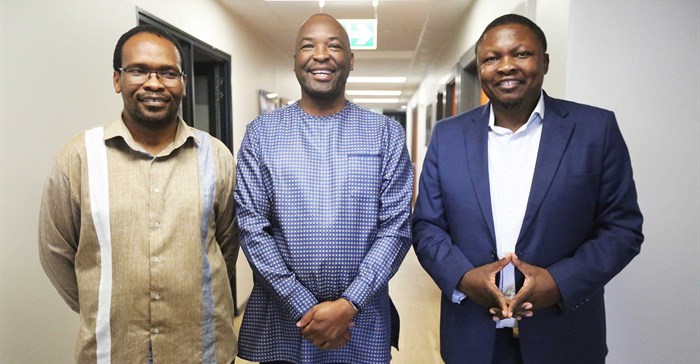Black citrus producers receive R12m boost for commercialisation
A R1.2m fund agreement between the Citrus Growers Association: Grower Development Company (CGA-GDC) and the Eastern Cape Development Corporation (ECDC) has been signed to enhance the commercial prospects of Black citrus producers in the Eastern Cape. This 18-month agreement is designed to support their commercial activities and reduce barriers to entering the export market.

The agreement will initially support 10 of the 37 black citrus producers in the Eastern Cape. The 37 black farmers are drawn from the citrus growing regions of Patensie (5), Sundays River Valley (13) under the Sarah Baartman District Municipality, and in the Kat River Valley known as the Eastern Cape Midlands (19) in the Raymond Mhlaba Local Municipality where black citrus producers are mainly concentrated.
Contribution to the Eastern Cape economy
According to 2023 statistics, the Eastern Cape citrus industry is the second largest in South Africa after Limpopo contributing 25% to Eastern Cape Gross Domestic Product with 24,508 hectares under production. The main export markets for the South African citrus industry are Europe, Africa, United Kingdom, Russia, North America, Asia, and the Middle East. Citrus varieties produced include lemons, with the Eastern Cape being the fifth largest exporter of lemons in the world, soft citrus (mandarins and clementines), oranges (valencias and navals) and grapefruit.
"The programme will support Black citrus producers with compliance with Global Good Agricultural Practices (Global GAP). The costly Global Good Agricultural Practices certification is a prerequisite for entering the export market. An additional requirement is compliance with Sustainable Initiative of South Africa’s (SIZA) ethical trade requirements.
"Farmers need to be certified on both standards to access export markets open to the citrus industry. The agreement will also result in the development of a feasibility study for the establishment of post-harvest facilities such as a packhouse and a juicing plant for participation in the value chain and also appreciate additional revenue streams for Black farmers and sector
Ensuring export readiness
"The agreement will be critical in ensuring that Black citrus producers fully realise their export potential by ensuring that they are compliant with Global GAP and SIZA standards. The agreement will ensure that Black citrus producers have this certification. The Global GAP ensures compliance with the safe use of chemicals during production and farming practices in the farms.
"The SIZA certification is an ethical trade requirement which enforces good relationships with farmworkers, adherence to labour laws of the country as well as promoting good living conditions on farms," says Akho Skenjana, ECDC senior manager for manufacturing and agroprocessing.
The agreement goes further to include a feasibility study to investigate the establishment of post-harvest facilities such as a packhouse and a juicing plant. The feasibility study will confirm the need for these facilities as well as the most strategic location, size or capacity and volumes needed.
This is based on the request from the Black citrus producers from the Sarah Baartman District Municipality. The juicing facility is envisaged for the Kat River Valley in Fort Beaufort in the Eastern Cape Midlands. The absence of a juicing facility translates into a lost opportunity for additional income streams for the farmers.
Future plans and goals
General manager for the Tshwane-headquartered CGA Grower Development Company, Lukhanyo Nkombisa says the agreement is part of its goals of driving the development of the citrus industry while contributing to its transformation agenda.
Nkombisa says in terms of the agreement, the capital injection will be used for compliance and feasibility studies which will go a long way in building up Black citrus producers in the province. The compliance work will include the assessments of the farming operations, support, and certification of Black citrus producers.
"The initial target is 10 Black producers as a start for compliance and certification support. In our database, we have 32 Black farmers in the Eastern Cape that need this type of support. Even though some are already exporting, they still need certification support because it is an annual requirement before the start of the citrus season. These certificates need to accompany their exports," says Nkombisa.
Nkombisa says the agreement with the ECDC is central to developing Black citrus farmers so that they are ready for commercialisation. The intention is to build the agreement into a five-year partnership with strict areas of focus.